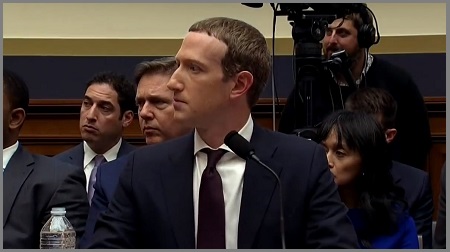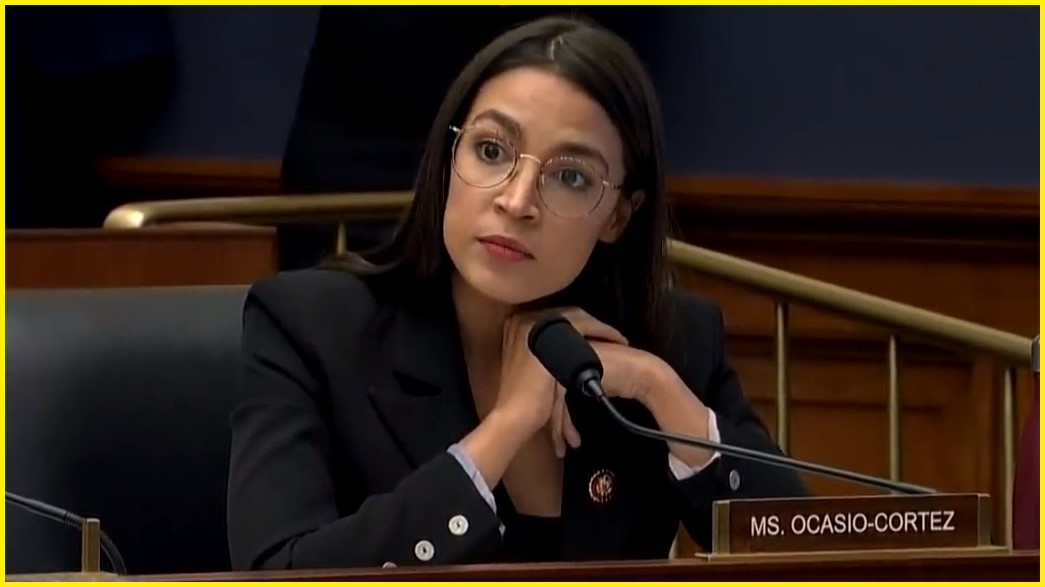Mark Zuckerberg has been interrogated by US members of Congress, with the Facebook founder attempting to defend the company against accusastions of discrimination, misinformation and “serious concerns” over its cryptocurrency play.
Zuckerberg appeared before the House Financial Services Committee on Thursday night at a hearing ostensibly about Facebook’s plan to launch its own cryptocurrency, Libra.
But the cryptocurrency play quickly took a backseat as members of Congress lined up to criticise Facebook for a range of questionable decisions and actions.
The representatives highlighted the company’s role in allowing politicians to spread lies and hate speech and its practices around user data.
Committee chair Maxine Waters set the tone early, backing an increasingly popular argument that Facebook should be broken up due to anti-trust issues, one being prominently supported by leading Democratic presidential candidate Elizabeth Warren.
“You have opened up a serious discussion about whether Facebook should be broken up,” Waters said. “Each month, 2.7 billion people use your products. That’s over a third of the world’s population. That’s so big that it’s clear to me, and to anyone who hears this list, that perhaps you believe you’re above the law.
“And it appears you’re aggressively increasing the size of your company and are willing to step on or over anyone, including your competitors, women, people of colour, your own users, and even our democracy, to get what you want.”

Mark Zuckerberg was not prepared for the grilling from Alexandria Ocasio-Cortez. Image: Supplied
Democrat Alexandria Ocasio-Cortez used the hearing as a chance to question Facebook’s policy of not fact-checking ads by politicians and candidates, and allowing them to publish misinformation.
“I just want to know how far I can push this...could I pay to target predominantly black ZIP codes and advertise them the incorrect election date?” Ocasio-Cortez asked.
Zuckerberg replied categorically, “no”.
“If anyone, including a politician, is saying things that could cause – that is calling for violence or risk imminent physical harm or voter or census suppression...we will take that content down,” he said.
But the Congresswoman’s next question on whether she could post an ad claiming that Republicans running in the primaries had voted for the Green New Deal left him stumped.
“I don’t know the answer to that off the top of my head,” Zuckerberg replied. “I think probably.”
“I think lying is bad. In a democracy, I believe that people should be able to see for themselves what politicians that they may or may not vote for are saying,” he said.
Another member of Congress, Democrat Sean Casten, asked whether Facebook would remove the ad of a politician if they contained hate speech, pointing to a former member of the American Nazi Party that had won a Republican primary in 2018.
“I think that depends on a bunch of specifics that I’m not familiar with in this case and can’t answer to it,” Zuckerberg answered.
But Casten said this response was “rather shocking”, and that it wasn't a “hard question”.
While Facebook’s attempts to launch its own cryptocurrency was far from the main topic of discussion, the committee did raise “serious concerns” with the plan, mainly based on Facebook’s checkered history.
“All of these problems I have outlined, and given the company’s size and reach, it should be clear why we have serious concerns about your plans to establish a global digital currency that would challenge the US dollar,” Waters said.
Zuckerberg acknowledged that he probably isn’t the “ideal messenger” for the cryptocurrency given recent events.
“I actually don’t know if Libra’s going to work,” he said. “I believe that this is something that needs to get built, but I get that I’m not the ideal messenger for this right now. We’ve faced a lot of issues over the past few years and I’m sure there are a lot of people who wish it were anyone buy Facebook who were helping to propose this.”
Libra has been troubled from the start, with the likes of eBay, Stripe, Mastercard and Visa all bailing from the project within the same day.
Zuckerberg said Facebook wouldn’t be launching the project without approval from US regulators.
“It’s a risky project and there’s been a lot of scrutiny,” he said. “We support Libra delaying its launch until it has fully addressed US regulatory concerns.”










